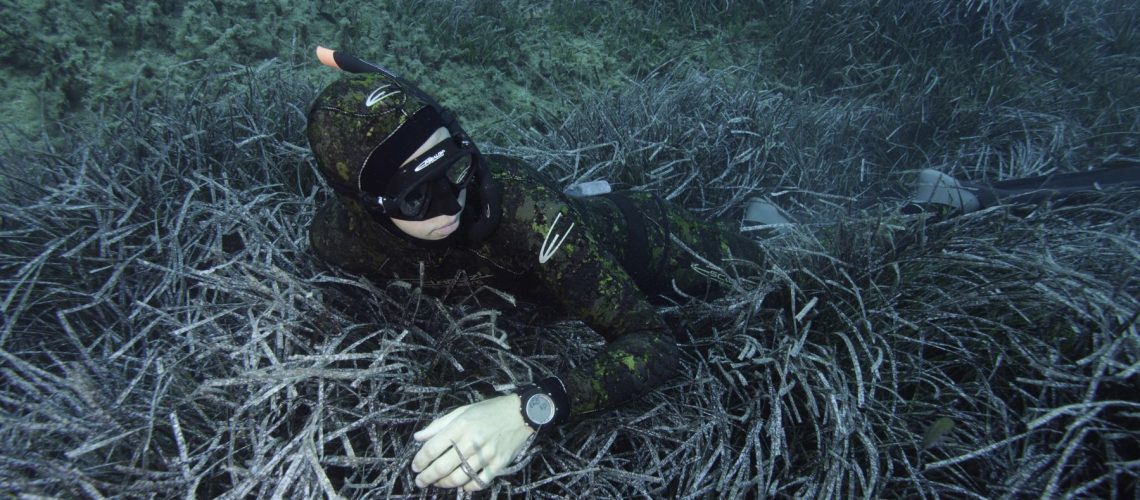

Freediving can open the door to so many other sports and activities. One of the reasons i got in to it was that it was a way of getting free seafood!
in 2014 i wrote my book, Underwater foraging – freediving for food, and it became a bestseller on Amazon within the year. In fact it was the bestseller for all diving books for that year, so just from that we know that its not just me thats interested in finding food underwater.
Why the interest?
Well, seafood has been in our makeup since the dawn of man, the Aquatic ape theory states that mankind developed its most enduring qualities on the estuaries and shoreline of prehistory. The ability to stand on two feet, our large and well developed brains and of course our incredible ability to hold our breath for longer than a purely land based mammal should be able all may come from adaptaions created during our journey to become the speacies we know as ‘man’ today. So hunting for food in the sea really is in our dna. You don’t need to do too much to unlock the skill.
What do you need to know?
Well, what to find and where to find it is the first thing, and thankfully (in the UK at least) there is loads to gather. Most of it can be found from above the low tide line, so you don’t even have to get your face wet if you dont fancy it. So that really opens it up to people of all abilities. If you think you need to be an expert diver to do well, think again. A keen eye is your greatest asset.
Know how to freedive, or at least ‘deep snorkel’ will open up a lot more options, primarily things like brown crabs, lobsters, scallops, larger mussles and certain seaweeds. This is more important on neap tides, where the water doesn’t retreat far enough to find the good stuff.
Why is underwater foraging good for you and the sea?
Commercial fishing is unfortunately very destructive, and when we engage in recreational fishing we have to be careful not to add to that problem. remember, just because you may get your seafood sustainably, doesn’t mean that you aren’t adding to the overall problem. So by underwater foraging we can approach the collection of marine seafoods in the most sustainable way possible.
We can chose to not take a fish (via spear), we can see if the local population of crabs and lobsters is healthy enough to take one for our dinner, we can choose seaweeds that grow well in our area, in fact we are given so much time and choice to make the right call it really can relieve the pressure on an area.
So not only can you leave your impact to a minimum, you get the chance to collect some of the healthiest foods available to us. Seaweed, or marine algae, has very high levels of a variety of vitamins and minerals, iodine, protein. It has been shown to reduce cholesterol, blood pressure and the risk of diabetes. Superfood doesn’t do it justice.
So come and join me on an underwater foraging course here in sunny (sometimes) Cornwall, so i can personally show you the hidden treasures of the sea.

E: freedivinguk@gmail.com or Info@freediveuk.com
T: 07980728613
Opening times –
MON-SUN 9:30AM-6:30PM
FreediveUK offer freediving courses for all levels in the clear water of the Atlantic ocean. Based in Newquay Cornwall, learn to freedive, spearfish, marine forage or even be a mermaid with freediving expert and author Ian Donald and his team. Call 01637 621922 for more info. School and shop located 50 East St, Newquay, Cornwall, UK.
All content copyright FreediveUK Ltd – Registered in England & Wales. Company Number: 09429216 Registered Address: 33 Bezant place, Newquay, TR7 1SJ
We are now operating as normal!